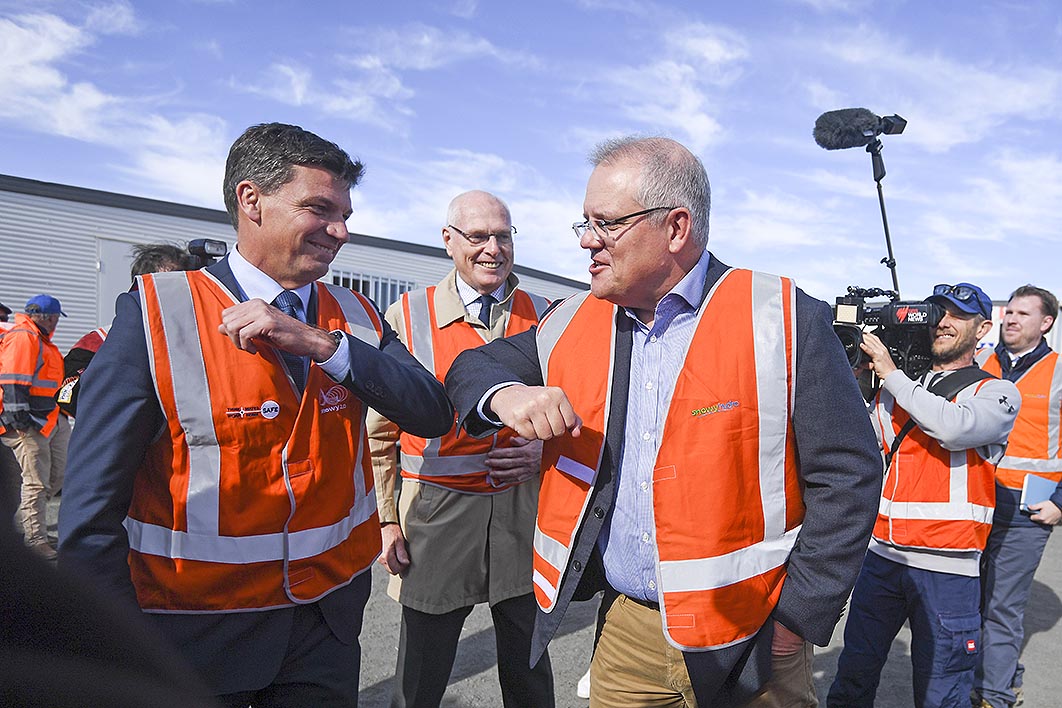A favourite conceit in some sections of Australia’s foreign policy establishment is that Australia can “punch above its weight” in international affairs, as we did for many years in international sports. The idea is that by clever diplomacy we can exert more influence in the world than would be expected for a country with less than half a per cent of the world’s population and about 1.2 per cent of its economic output.
Last year, former prime minister Kevin Rudd described this idea as a “hackneyed phrase that has become part of the self-affirming psychology of our wider national inertia.” Recent events have shown him to be correct.
Apparently with the aim of pleasing the Trump administration in the United States, the Australian government took the lead in pushing for an inquiry into the origins of the Covid-19 pandemic, in terms generally seen as seeking to pin blame on China’s initial response to the emergence of the virus in Wuhan in December last year.
Given that Australia has suffered less than most other countries in the pandemic, there was no obvious reason to take the lead in this matter. Unsurprisingly, given its increasingly aggressive “wolf warrior” stance in international matters of all kinds, China retaliated. Beginning by escalating an existing dispute over barley, China has restricted imports of all kinds from Australia, including coal, wine and beef. The exception, so far, has been iron ore, our most valuable export and the one China can least do without.
We have at least had the sympathy of other countries, some of whom have also been bullied by China, in this fight. There was even a suggestion of an initiative to buy Australian wine to make up for the loss of the Chinese markets. But sympathy goes only so far. The United States has been eager to meet China’s demand for more barley to replace the Australian product.
Unfortunately, any consideration we might have gained as the victim of Chinese government bullying over the pandemic response has been thrown away because of the government’s refusal to respond to the even larger crisis of global heating. With the adoption of a 2050 net zero emissions target now becoming the norm for developed countries, the Morrison government has been paralysed by the fear that any action would provoke a backbench rebellion. As Rudd observed in 2019, “The current government’s attitude to our place in the region and the world is driven by one organising principle, which is the extension of domestic politics by other means.”
In the domestic context, having killed off Labor’s carbon pricing policy just as it was beginning to reduce emissions, successive LNP governments have relied on dodgy accounting and grandly titled but ineffectual gestures, including the Emissions Reduction Fund, the Energy Security Board, and the Low Emissions Technology Roadmap, to give the impression of action while doing nothing to offend the extremists among its supporters.
The assumption has been that this meaningless symbolism would work at the international level as well. In the lead-up to the weekend’s Climate Ambition Summit, and following discussions between Morrison and the joint host, British prime minister Boris Johnson, the government assumed that the world was so eager for our participation that any kind of concession would be sufficient for a warm welcome. The concession chosen was to finally abandon the claim that we were entitled to meet our 2030 target with surplus credits from the Kyoto round that finished in 2012.
Much to the government’s fury, Morrison did not receive the expected invitation to speak, which was extended to seventy other world leaders. Australia was lumped in with the worst climate offenders: Brazil, Russia and Saudi Arabia. To make matters worse, China was given a prominent role, reflecting a desire among the summit organisers to encourage that country’s positive steps — especially the recent announcement of a net zero target for 2060 — and play down more negative developments, such as the surge in coal plant permits issued by provincial governments.
The affronts will keep on coming as long as our do-nothing stance is maintained. Yesterday it was reported that the Britain’s Labour Party has demanded that the British government opposes Matthias Cormann’s nomination as secretary-general of the OECD. The only ground cited was Australia’s foot-dragging on climate policy.
To return to the boxing metaphor, China is a heavyweight and can’t easily be pushed around. The rest of the world can reward positive developments there, but it can’t enforce them.
Australia is a lightweight, and we are fighting out of our class. If we want to succeed on issues like our trade dispute with China, we can’t afford to poke our potential allies in the eye by suggesting, as Scott Morrison has repeatedly, that our climate policy will be determined by our own national interests and not by our obligations to the rest of the world. •




